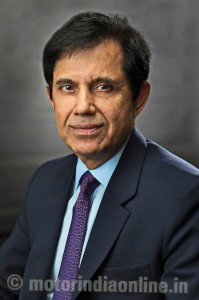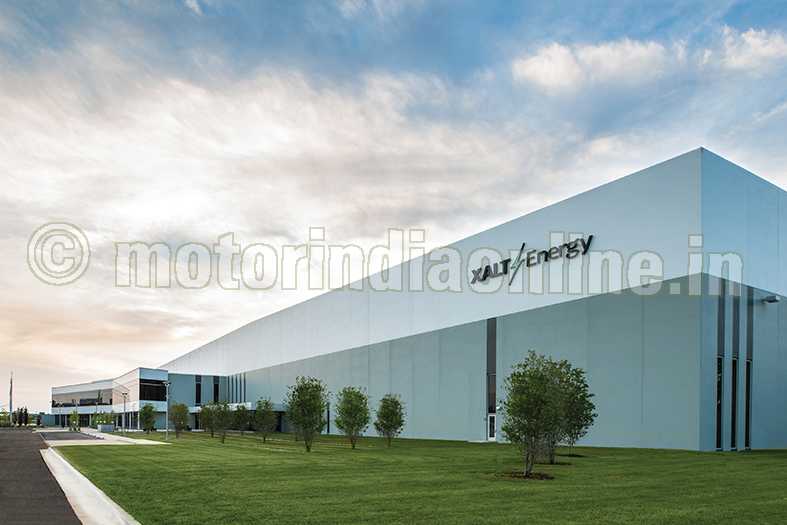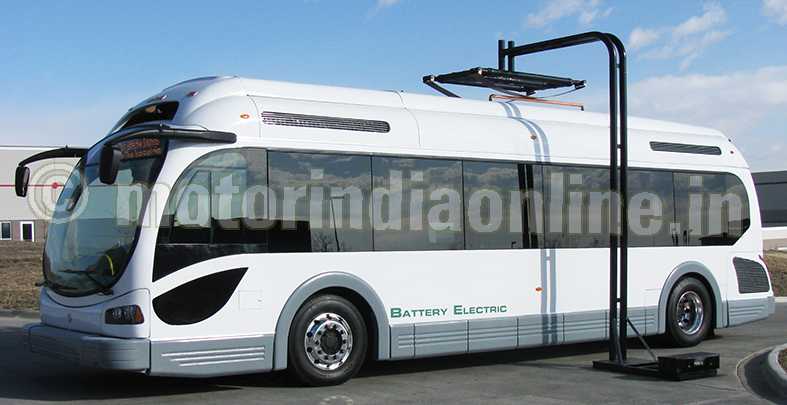Working in tandem to deliver game-changing battery solutions
The past few years have seen electric mobility become a buzzword, both in the Indian context and also globally. There has also been a surge in the number (of models) of fully-electric and partially-electric (hybrid) solutions introduced by well-known vehicle manufacturers across the globe. In the commercial transportation space, a number of electric solutions are already available in the bus market, coming from the stable of companies such as Volvo, Daimler, Scania, MAN, BYD, Solaris, Ebusco, Optare and many others, though they might not be as popular as their passenger car counterparts like Toyota Prius, Ford Focus and the India-made Mahindra Reva.
As India works towards making its National Electric Mobility Mission Plan (NEMMP) a success, a deeper analysis of the requirements of electric mobility indicates that a lot of elements need to fall in place in order to make electric transportation a practically feasible venture and also ensure it is beneficial to all the stakeholders involved. One such important area which needs attention in electric mobility is the energy storage capability.
While the battery technology, or rather battery chemistry has its rich historic background, we see a new development taking place in the US, which is set to revolutionize the energy storage concept across the globe. Mr. Subhash Dhar, Founder, Chairman & CEO, Energy Power Systems (EPS), and CEO, XALT Energy, outlines how his two companies could jointly provide an unmatched and innovative battery solution for the world, in an exclusive media interaction at Detroit.
The EPS Solution

Founded just three years ago in 2011, EPS develops and makes commercially viable energy storage solutions, aspiring to become a leader in providing long life, high power solutions at a dramatically more attractive price point than conventional battery solutions. By building on proven and robust electrochemistry, EPS has developed a simple yet revolutionary approach to serve the needs of the transportation and smart grid markets. Headquartered at Metro Detroit in the US it will have its first manufacturing facility up and running by the end of 2015.
Says Mr. Dhar: “We started our EPS operations in August 2011, and what has been created in just over three years is a truly phenomenal achievement by the team. We have taken the old chemistry and completely redesigned it into a product which is ready for use in vehicles today. We have completed our development phase and are now ready to set up our first manufacturing plant in Michigan.”
EPS’ first battery, coded P1, will be rated at 12V 60-75 amp-hour (Ah) while it will also offer in the same configuration a 48V 15-18 Ah product. It will be the first-of-its-kind monobloc single cavity 12V or 48V battery and could very well be a game-changer in the global battery arena.
Revealing a key aspect of his company’s growth in quick time, he says: “Very often, the management of a new company spends a lot of time raising capital which might keep them away from focusing on more important things such as product development. At EPS, we have a very good capital partner in Baltimore-based Townsend Capital, who understands the value of what we are offering. In the last four years, I have not spent more than four days talking to the investors for capital which has helped us focus on developing an excellent product within a short time. This is a significant element in our being successful today.”
Having completed the product development process within 36 months as planned, EPS has set its sights on stationary applications such as grids and renewables with its upcoming plant, while it also plans to seed its batteries for automotive applications such as Start-Stop, Micro and Mild Hybrid vehicles. As far as the Indian market is concerned, the company will move forward only when it finds a suitable local partner with a long-term commitment to grow the business; EPS technology offers much desired low cost solutions for the Indian market.
The company is also open to licensing its technology to interested companies in overseas market, but only when it makes practical sense for the company and for the right applications and end-users and customers. “We want to understand our customer needs. We don’t want to be a ‘me-too’ battery company. We want to make a battery that fits the application, so the customers and end-users can actually see the value”, states Mr. Dhar.
In the automotive space, EPS batteries can be used for 12V start-stop applications, micro-hybrids, mild and strong hybrid electric vehicles (HEVs). The high rate and long life characteristics of EPS batteries offer a unique solution for ‘opportunity charging’ thru charging stations, thereby lowering the energy cost to the user.
When it comes to the financial part of battery usage, the common notion is that the cost per kilo watt-hour (Kwh) is the most important factor in determining the marketability of batteries. But EPS considers it a myth while pointing to the cost per kilowatt (KW) as the more valuable and relevant index for many applications. EPS batteries deliver higher KW per kg which results in a cost of around $12-15 per KW as against a whopping of $45-60 per KW for conventional and advanced Li-Ion batteries in the market.
EPS batteries are built using its proprietary Planar Layered Matrix (PLM) technology which helps deliver more power by eliminating redundant internal connections. The company has already filed over 20 patents, the first one being granted in September this year. It expects to have at least 30 patents in the next two to three years.
XALT Energy
While EPS works on the basis of lead-acid chemistry with some inherent modifications, XALT Energy offers lithium (Li) ion battery solutions. Both EPS and XALT make batteries, but the fact that the former works on lead-acid chemistry-based PLM batteries and the latter on Li-ion technology ensures they do not compete with each other in any way, while it also helps offer a complete solution to the varying requirements of different customers for a wide range of applications.
XALT Energy is one of only a few companies in the world with the design expertise, engineering capability and manufacturing capacity to develop and produce a high-quality, turnkey battery system, while also offering real-time monitoring, field service and support, providing a one source accountability and a single warranty for the entire system. XALT’s corporate operations, engineering and manufacturing are based in the US while it also has sales offices in Asia Pacific and the Middle East.
XALT produces Li-Ion batteries which offer a compelling value proposition in marine and commercial transportation for running truck and bus fleets. In commercial transport, the total operating cost matters more than the initial vehicle cost. In such cases, XALT delivers a perfect solution which can significantly reduce the operating costs while running electric vehicles.
Fully-electric and hybrid electric buses have become a reality in many parts of the world. But for the concept to succeed, it should be financially viable, the battery packs should be capable of delivering longer back-up and, lastly, also most importantly, the safety aspect should be taken care of. XALT is ready with a sustainable and profitable solution for this purpose and also for marine, stationary, grid, industrial and other automotive applications such as hybrid cars.
Together with EPS and XALT, what its CEO Mr. Dhar and his team can offer the world is really a complete battery solution created out of experience, expertise and innovation. The CEO fittingly sums up: “We offer solutions to our customers and do not just sell products. EPS and XALT complement each other perfectly, and we are very well positioned with the two different technologies the companies offer. It’s like a ‘one plus one equals three’ situation and will prove to be a game-changer in the battery industry globally.”
XALT Energy in brief• 700 MWh/year plant began operation in 2012 • Dow Kokam reborn as XALT Energy in 2013 • Highly automated manufacturing facility at Midland, Michigan • Strong financial backing • Strong network of partners |

